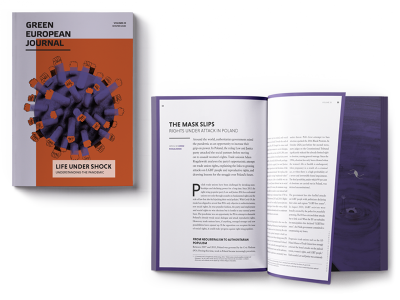In keeping with its authoritarian and populist tendencies, Viktor Orbán’s government did its best to use the pandemic to its advantage, while avoiding responsibility and difficult decisions.
During the first wave of the pandemic, Hungary’s rate of confirmed Covid-19 cases was amongst the lowest in all the European Union. Its neighbours had similar numbers. The trend sparked the interest of the international media who tried to decipher the secret to Central European resilience. Is it some miracle vaccine Eastern Europeans received as children? Or did their leaders’ fast reactions and determined policies save their populations? Boris Kálnoky, German daily Die Welt’s Hungary correspondent, who has since become the head of a pro-Viktor Orbán journalism school, went so far as to attribute Hungary’s low case numbers to the prime minister’s illiberal governance.

And indeed, the pandemic was perfect for Viktor Orbán. Despite its low numbers, Hungary was the recipient of the largest EU coronavirus emergency support payments (3.9 per cent of its GDP, compared to 0.1 per cent for Italy). Still, the prime minister told his voters that the EU was doing almost nothing to help the country, while thanking China and Uzbekistan for the masks they sent. The limited international attention presented an opportunity to introduce emergency measures that included provisions such as jail time for spreading misinformation. They have since been withdrawn. Leaving some of the more painful and politically risky decisions to the opposition-run municipalities, Orbán then used every opportunity to hold the opposition responsible for the casualties of the pandemic. The pro-government press accused Gergely Karácsony, the Green mayor of Budapest, of “negligence” for allowing the virus to spread in retirement homes.
Leaving some of the more painful and politically risky decisions to the opposition-run municipalities, Orbán then used every opportunity to hold the opposition responsible for the casualties of the pandemic.
Developments this autumn have shown that the low case numbers during the first wave were not at all due to the prime minister’s extraordinary leadership skills. It is way more likely that luck played a key role: the virus reached the country much more slowly than other EU members and so Hungary had more time to prepare. Most of these opportunities were however wasted: while growing case numbers in Croatia were alarming, no restrictions were introduced targeting the relatively large numbers of Hungarians planning to spend the summer on the Adriatic. Post-lockdown rules such as masks on trains and public transport were not enforced properly.
By early September, Hungarian case numbers had skyrocketed – but the government still could not find better responses than limiting international travel. The next months will show whether social and health institutions were well enough prepared for a second, and potentially much more serious, wave of the pandemic. There are some worrying signs: the health system is underfunded, and although the Hungarian government spent the last months buying 16 000 ventilators, there are not enough trained operators for them. This context might provide an opportunity for the opposition-run municipalities and especially the Green mayor of the capital to show that – even with the limited funds they have – they can act more responsibly than the government. Let us hope they will not waste that chance.

